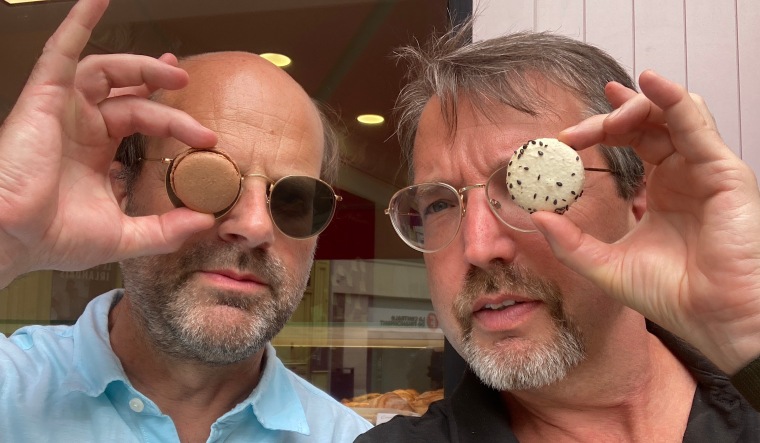
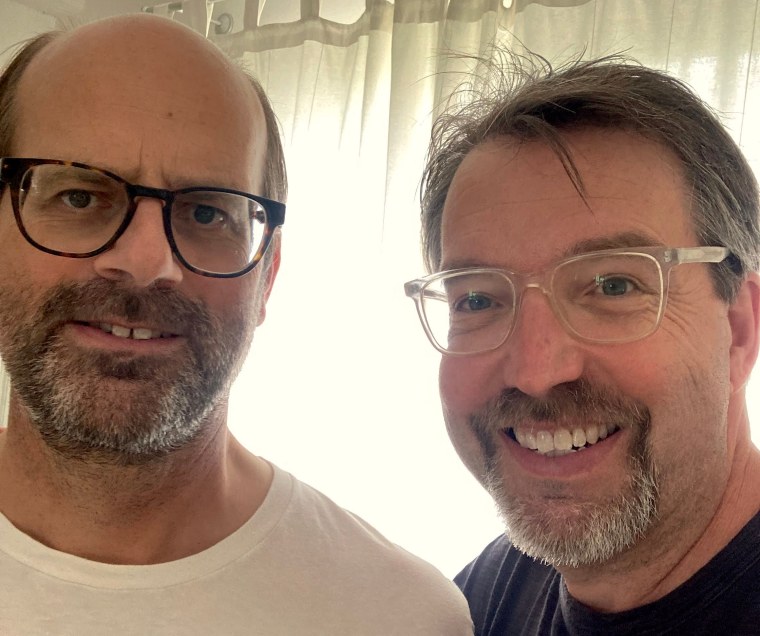
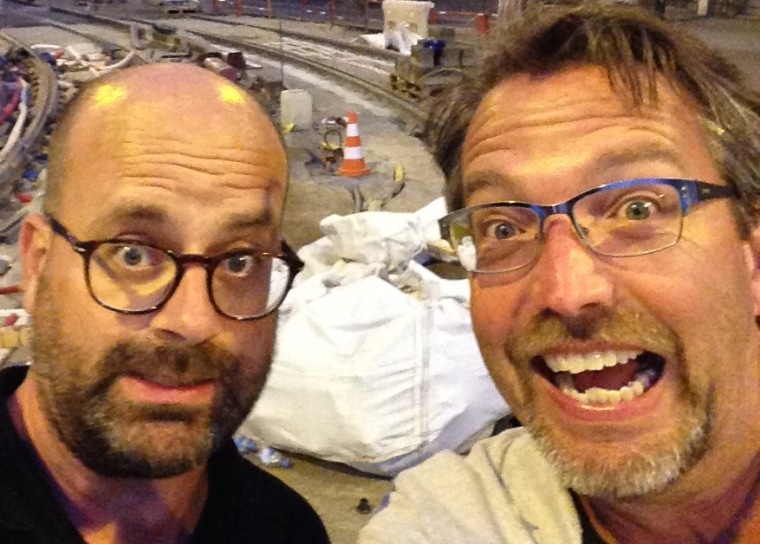
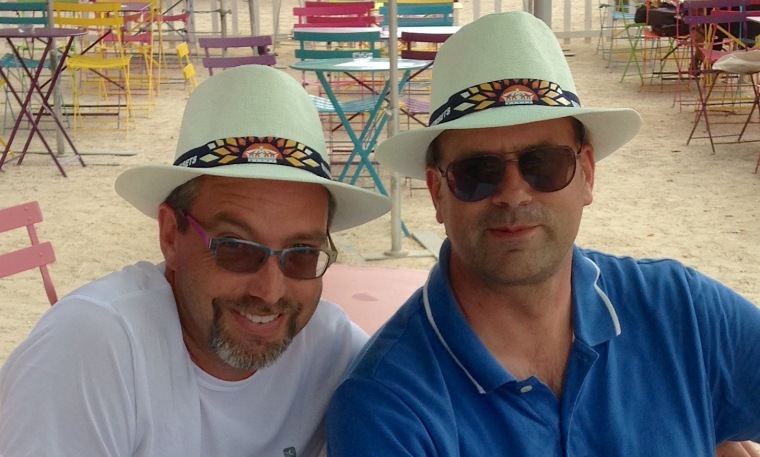
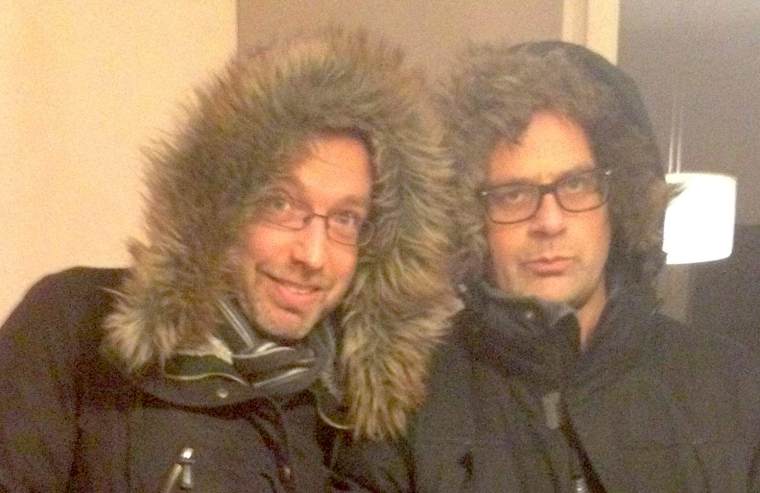
So Melinda & I spent most of today out and about in Nantes, just the two of us. Since my beloved tramway line (Ligne 2) is closed for the summer for updates, we had to take bus #26 into town.
After wandering around and stopping at various shops to look for things for our grandson, we got hungry. We started looking for restaurants.
Which would you choose, if you were me:
We actually went with none of the above, opting for a salad bowl.
Last night, Melinda & I took Bérnard & Christine out to dinner as a thank you for hosting us, among other things for which we have supreme gratitude. I wouldn’t usually say how much a dinner out cost, but the fact that it was 143 Euros was profound for me. If you want to know why, please read this post.
As we returned to the car, I snapped this picture:
A few minutes before that, soon after exiting the restaurant, I had taken this picture:
I’m also lamenting the death of the brilliant Sinead O’Connor today. Talk about somebody ahead of their time. Learn more in this short essay about her song “Black Boys on Mopeds” from 1990 and then listen to the song below.
Hello Bentsen,
My name is Lupa. Christine and Bernard are my humans. I am a 6-month-old Akita Inu and spend my days teaching them how to give me treats when I do things like sit down and stay in one place. It’s really easy, but I have to make them think that it’s hard.

I’m ready for a treat.
Oh, sorry, I got distracted for a minute. A neighbor just walked by. How dare they! Who did they think they are? Good thing I’m on the job.
Oh, do you know what “whisper” means? Christine keeps telling that to me right when someone is walking by the house. I’m busy barking loudly to alert her to the danger and then she says, “whisper” and my name. It’s really distracting.

Can I come you to your party? Can you come to mine? Every day is a party, especially when you get a kong filled with cheese rinds. That’s the best.
Sorry, I got distracted again. Bernard just got home and it’s a lot of fun to tell him how glad I am to see him.
Have a great day, Bentsen. I think I’m going for a walk.
With bites, barks & bisous,
– Lupa
PS – Bentsen, do you know why the humans are so obsessed with poop? They’re always picking up mine. Do they collect it? Sell it on eBay?
Okay, so this post may not be so much about our time in France this summer. Feel free to file a complaint although I learned from my father when I was a child and unsatisfied about something that “The Complaint Department is not open.” Looking back, I don’t think the Complaint Department was ever open.
Perhaps there’s a lesson in there somewhere…

Student Nurse was a Seattle-area band that I appreciated when I was in high school and just after. Learn more here and here. They were founded by John & Helena Rogers, John also going by the name Johnny Rubato. I got to know both Johnny & Helena a little bit because they ran Rubato Records, what was a fabulous used record store that began in downtown Bellevue. Typically, I had to head to the Ave in the U District to shop for used records so having Rubato’s in Bellevue, where I grew up, was a great nearby alternative.
(As a quick aside, this feature from The Stranger, which includes a reference to Rubato Records, is a great read if you appreciate used record stores and the people who work for them.)
Soon before Rémy was born in May, I was listening to some music online and came across the fact that Student Nurse had reunited to play a few dates last year. One click led to another (you know how that is, right?) and I found they had released a retrospective CD, that Helena was painting and selling art (I bought an original of hers of Big Mama Thornton that now hangs in my home office), and that I could purchase some Student Nurse merchandise.
I snatched up this onesie for the soon-to-be-born baby. And yesterday, while going to bed (in France), Chloe sent me pictures of Rémy in the onesie.
If we need to make this even more French-centric to warrant the “France 2023” tag I’ve affixed to this post, here’s Student Nurse and their song “C’est Tout” (French for “that’s all”) from that retrospective CD as posted on YouTube:
PS – Support independent music by buying the retrospective CD on Bandcamp.
So there’s this ongoing joke in my family that when I’m in France I go to the grocery store to buy clothes. And I admit, it’s technically true. I like getting SOME of my clothes at Leclerc, a large grocery store chain in France that is set up like the large Fred Meyer stores we have in the US.
You can get groceries, to be sure, and at decent prices. Both Leclerc and Fred Meyer also sell household goods, even furniture and automotive things. There are sporting goods and electronics.
And, yes, clothes.
So every time we come to France, I make plans to head to Leclerc to check out the latest in men’s fashion. Or, better put, for the bargains that I might be wearing later this year.
Staying at the Bertail’s, and with Melinda hanging out with Christine and with Bérnard at work, I decided I’d walk to the Leclerc where I did most of our family’s grocery shopping during the sabbatical year, the place where I’ve bought quite a few of my clothes over the years.
Now one thing different about this year compared to past years, this time I’m a grandfather. In other words, I never really had reason to look at the baby clothes at Leclerc before now. And, boy, did I look. In fact, I was so taken by the cuteness I saw that I sent a text to Chloe, mother of Rémy, mother of my grandson!
It was about 1pm here in France when I sent the text, what is 4am back in Seattle. And guess what? Chloe was awake, feeding Rémy. She texted me right back:
Spoiler alert – Rémy will have some clothes from the grocery store. Just like me, Grandy, his grandfather.
For those new to Melinda’s and my travels to France, let me just say that the city of Nantes is our second home. We lived here for 13 months in 2010/11 and have traveled back many times since. Some of our closest friends live here. So today, arriving in Nantes is a homecoming of significant sorts for us.
I’m tired as I write this after a short night of sleep and a long day of travel so am hoping the above photo will serve as the main happy announcement of our safe arrival in Nantes. We drove 90 minutes to the Montpellier airport this morning, arriving less than an hour before our scheduled take-off. Then it was a 75 minute flight to Paris, a 50 minute flight to Nantes, and a 25 minute taxi ride to our old neighborhood, the place where we met Christine & Bérnard in 2010 and whose home we now are at.
I walked over to the Hippodrome, one of my happiest places on earth, and snapped this selfie.
Denouement is a fine word to describe the day after a French wedding, I’m thinking. More literally, it’s the final part of a story, the point when all the plot points come together and we can close the book.
That said, I’m not really sure there is such a thing as a “day after” a French wedding, at least not the one in which Melinda & I have been enjoying since Friday. If yesterday’s reception didn’t ever end (word this morning is that Frédérique, Romain’s mom, was still dancing at 6am), and today’s brunch and pool party began at 11am, maybe there is no denouement.
Besides, a wedding is the BEGINNING of a story, not the END.
Melinda & I managed to keep dancing until 3am, at which point we (read: Melinda) drove the 15 minutes to the incredible spot at which we’re staying (well done, Melinda). We slept in until almost 10, before heading back to the venue for today’s brunch, the same spot used for Friday’s white party and yesterday’s reception.

After that, we drove to Avignon, about an hour away, where Melinda spent a semester in college in 1984. We hunted for the home at which she stayed with uncertain success before entering the walled city and enjoying a festival taking place. These two photos of us come from when we stopped to cool off with a glass and a small meal.

Hmmm… considering we head to Nantes tomorrow to reconnect with Christine and Bérnard, denouement is the wrong word for what we’re feeling, for sure.
Okay, so there is NO WAY to fully summarize this wedding. From its 90 minute ceremony in an ancient French church in a tiny town to the reception that started at about 6pm and continued for at least 12 hours (Melinda & I managed 9 of those – not bad considering jet lag and all), what I have for you are some photos:








 So one of the big reasons for this year’s trip to France is to celebrate the marriage of Romain and Cléménce. Romain, you longtime blog readers will recall, is a member of the Boudeau Family, the family responsible for us choosing to live in Nantes back in 2010. We became fast friends with them during our year there, something that is a vast understatement.
So one of the big reasons for this year’s trip to France is to celebrate the marriage of Romain and Cléménce. Romain, you longtime blog readers will recall, is a member of the Boudeau Family, the family responsible for us choosing to live in Nantes back in 2010. We became fast friends with them during our year there, something that is a vast understatement.
 Today was the first part of the wedding celebration, what is called a “white party.” In short, this means that people wear white clothing, I guess. I’m not sure if all parties of this sort take place in southern France but if they do, I highly encourage you to attend one. The venue was, perhaps, the most spectacular spot for a party I’ve ever seen (and I was born in Omaha, mind you). I don’t think any words I could use would do it justice. Let me just say that there were views, and some trees, and a big sky, and some buildings. It was about 90 degrees and there was a band and an open bar, and a pizza truck.
Today was the first part of the wedding celebration, what is called a “white party.” In short, this means that people wear white clothing, I guess. I’m not sure if all parties of this sort take place in southern France but if they do, I highly encourage you to attend one. The venue was, perhaps, the most spectacular spot for a party I’ve ever seen (and I was born in Omaha, mind you). I don’t think any words I could use would do it justice. Let me just say that there were views, and some trees, and a big sky, and some buildings. It was about 90 degrees and there was a band and an open bar, and a pizza truck.
Oh, there were some really nice people there, too, most of them French (all of them, I think), and many of them our friends. People seemed genuinely pleased to see us and by us I mean Melinda AND me. Go figure.
 We were pretty tired, given we had flown 9 hours from Seattle to Paris, then another hour+ from Paris to Montpellier. In Montpellier we rented a car and drove 90 minutes into the center of French bliss (see attached map and the black arrow, that’s us).
We were pretty tired, given we had flown 9 hours from Seattle to Paris, then another hour+ from Paris to Montpellier. In Montpellier we rented a car and drove 90 minutes into the center of French bliss (see attached map and the black arrow, that’s us).
About where we’re staying this weekend, I encourage you to visit this website. That’s where we are; in fact, it’s where I am as I write this.
Now about the marriage, the wedding ceremony is taking place tomorrow at 3:30pm, followed by a reception that is supposed to last into the wee hours of the morning. And by “wee hours,” I think that means the party will extend into next year.
More on that in my next post. And about posts, here’s what Melinda & I were doing on this day in 2012.